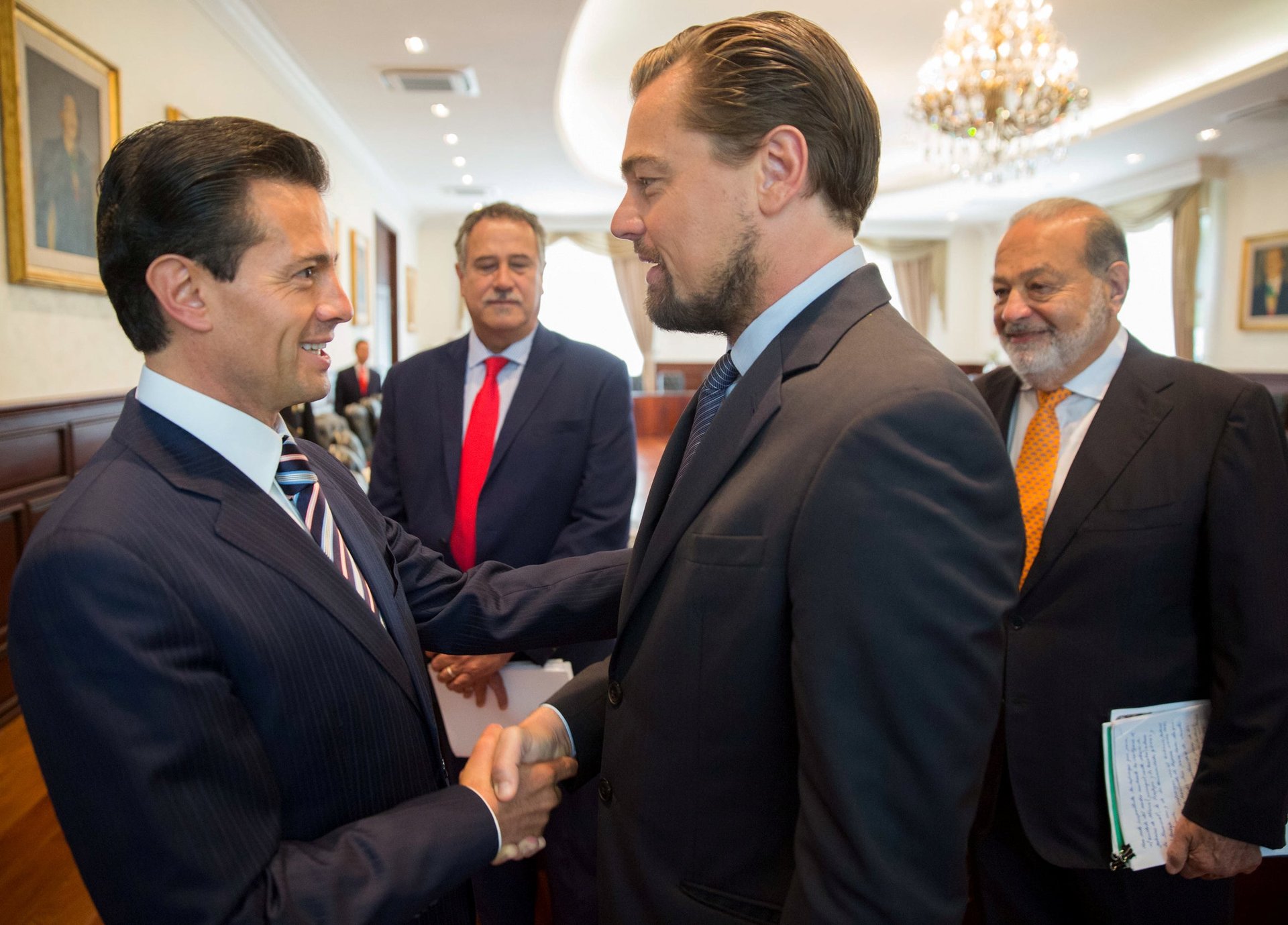Leonardo DiCaprio is stepping in to save a porpoise driven almost to extinction by bureaucracy
For two decades, the vaquita, the world’s smallest porpoise, has been on the verge of disappearing from Mexico’s Sea of Cortez, its only habitat.


For two decades, the vaquita, the world’s smallest porpoise, has been on the verge of disappearing from Mexico’s Sea of Cortez, its only habitat.
The Mexican government has attempted to protect the animal, but its policies have utterly failed due to incompetence: the vaquita’s numbers have continued to dwindle in recent years, and are now down to 30. Authorities have so far been unable—or unwilling—to enforce rules barring practices that endanger the vaquita, and mismanaged programs designed to prevent those practices.
Actor Leonardo DiCaprio is now trying to come to the vaquita’s rescue. Last month he started publicly pressing the Mexican government to do more to save the round-faced porpoise, whose name means “little cow” in Spanish. Mexican president Enrique Peña Nieto immediately responded to him via Twitter, and on June 7 signed an agreement with DiCaprio’s foundation and that of Mexican telecom tycoon Carlos Slim to launch a major last-ditch effort to save the vaquita.
It’s a notable example of the kind of pressure star and corporate power can exert on politicians, particularly on an unpopular president (link in Spanish) desperate for good news.

Under the deal, the Mexican government agreed to permanently ban gillnets, which entangle and drown the cute cetaceans. The nets are used by illegal fishermen—there have been temporary blanket bans in the past, as well as rules banning fishing in certain areas—to catch another endangered Sea of Cortez-dweller, the totoaba. The totoaba is a large fish whose swim bladder is a hot commodity in China, where it is believed to have medicinal properties. The deal also forbids fishing at night, when, historically, it’s been harder for law enforcement to tell who is fishing legally and who is fishing illegally. Meanwhile, DiCaprio’s and Slim’s foundations will help to create alternative ways to make a living.
But the commitments, and new laws, while laudable, might be too little, too late.
That’s because while the vaquita never leaves the Sea of Cortez, the threats to its existence extend far beyond the 62,000-sq-mile body of water separating the Baja California peninsula from mainland Mexico. Saving the tiny porpoise will require addressing deep-rooted problems in Mexico and beyond, including “organized crime and internal migration, Mexico’s troubled law enforcement sector, international smuggling networks and rising demand for animal parts for use in traditional Chinese medicine,” according to Vanda Felbab-Brown, a Brookings Institution fellow who is part of a working group to preserve the porpoise. Those issues add up, and are why numerous efforts to curb illegal fishing in Mexico in the past have all withered on the vine.